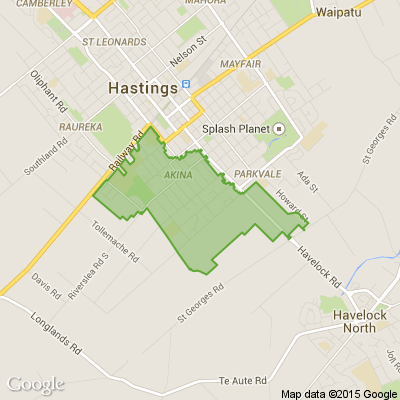Coronavirus 2019-nCoV History Repeats An Will Again.
The coronavirus has spread much more quickly than SARS did in 2003. The new virus first emerged in Wuhan, China, on Dec. 31. The deadly SARS virus, by comparison, infected a total of 8,098 people globally from Nov. 1, 2002, through July 31, 2003, according to the World Health Organization
On Wednesday, WHO Director-General Tedros Adhanom Ghebreyesus told reporters that the “continued increase in cases and the evidence of human-to-human transmission outside of China are, of course, most deeply disturbing.” The illness produces a range of symptoms with about 20% of the patients becoming severely ill, including pneumonia and respiratory failure, he said.
SARS, or severe acute respiratory syndrome, is the disease caused by SARS coronavirus.
Brief History
In November 2002, doctors in the Guangdong province of southeastern China began to see the first cases of what would become known as SARS, or severe acute respiratory syndrome. Over the next several months, 8,096 people in 26 countries contracted the new viral illness, leading to 774 deaths. Although the slow reporting of initial SARS cases helped the illness spread, globally-enforced medical practices eventually helped end the outbreak.
The reasons for the slow reporting of SARS are complicated. Doctors had never seen the viral illness before, and at first, those in Guangdong province thought the SARS cases they were seeing might be atypical pneumonia.
“Nobody was aware of it, including probably people in Beijing,” says Arnold S. Monto, a professor of epidemiology and global public health at the University of Michigan. Even after doctors began to realize that there was something new about the illnesses they were seeing, “it was kept locally for a while, which was one of the problems.”
There were also reports that officials may have encouraged doctors not to report new cases when SARS spread to Beijing. In April 2003, Time magazine obtained a letter from Jiang Yanyong, a physician at an army hospital in Beijing, alleging the actual number of SARS cases in the capital city was much higher than the official count. This turned out to be true, and Chinese officials released the real numbers that month (and also began to monitor Jiang).
Two months into the epidemic, the coronavirus has not proven to be as deadly as the SARS virus. That, however, may also help explain why it’s spreading so quickly. It has an incubation period of up to two weeks, which enables the virus to spread through person-to-person contact.
The coronavirus, a highly contagious, pneumonia-causing illness that infects the respiratory tract, is now responsible for 213 deaths in China as of late Thursday and 9,692 infections worldwide, according to Chinese officials and official figures from the World Health Organization.
SARS, or severe acute respiratory syndrome, infected 8,096 people worldwide with approximately 774 official SARS-related deaths. Even with 43 new fatalities reported, the fatality rate remains steady.
SARS had a fatality rate of 9.6% compared to the fatality rate of 2.2% for the coronavirus - so far.
People should be concerned that Govt policies an the well being of the Greater Public here are not considered above that of Tourists, Oversea's School Students, an Businessmen. It seems once again that profit is more important than people. Our inbound flights should of been closed much sooner or visitors from effected area not allowed to enter unless prepared for a 2 week quarantine.
Poll: 🤖 What skills do you think give a CV the ultimate edge in a robot-filled workplace?
The Reserve Bank has shared some pretty blunt advice: there’s no such thing as a “safe” job anymore 🛟😑
Robots are stepping into repetitive roles in factories, plants and warehouses. AI is taking care of the admin tasks that once filled many mid-level office jobs.
We want to know: As the world evolves, what skills do you think give a CV the ultimate edge in a robot-filled workplace?
Want to read more? The Press has you covered!

-
56.6% Human-centred experience and communication
-
13.2% Critical thinking
-
26.3% Resilience and adaptability
-
3.9% Other - I will share below!
Brain Teaser of the Day 🧠✨ Can You Solve It? 🤔💬
Make a hearty dish. Take just half a minute. Add four parts of kestrel. Then just add one. What have you made?
(Trev from Silverdale kindly provided this head-scratcher ... thanks, Trev!)
Do you think you know the answer? Simply 'Like' this post and we'll post the answer in the comments below at 2pm on the day!
Want to stop seeing these in your newsfeed? No worries! Simply head here and click once on the Following button.

Poll: Should the government levy industries that contribute to financial hardship?
As reported in the Post, there’s a $30 million funding gap in financial mentoring. This has led to services closing and mentors stepping in unpaid just to keep helping people in need 🪙💰🪙
One proposed solution? Small levies on industries that profit from financial hardship — like banks, casinos, and similar companies.
So we want to hear what you think:
Should the government ask these industries to contribute?

-
59.8% Yes, supporting people is important!
-
26.1% No, individuals should take responsibility
-
14.1% ... It is complicated






 Loading…
Loading…